Anxiety![]() is a constant feeling of varying degrees of fear and worry for no apparent reason. Worrying – especially when faced with some utterly challenging events in life – is quite a normal phenomenon in human life. When there is a reason for it, the feeling of anxiety or various fears hardly surprises anyone.
is a constant feeling of varying degrees of fear and worry for no apparent reason. Worrying – especially when faced with some utterly challenging events in life – is quite a normal phenomenon in human life. When there is a reason for it, the feeling of anxiety or various fears hardly surprises anyone.
However, if this condition is unjustified and long-term – we call it generalized anxiety disorder![]() . This condition can develop in a patient of any age
. This condition can develop in a patient of any age![]() , but the problem often begins in early adulthood. According to statistics, generalized anxiety disorders in women are even twice as common as in men.
, but the problem often begins in early adulthood. According to statistics, generalized anxiety disorders in women are even twice as common as in men.
It's important to note that generalized anxiety disorder is a prevalent specific disorder.
Anxiety is closely related to fear, which is referred to as free-floating worry. It can appear regardless of what the patient is doing at the moment, and it is usually definitely unjustified.
Patients' concerns may involve very different aspects. They may worry, among others, about their financial situation, the health of themselves and their family members, but also whether they perform well in their work and whether the relationship they are in at the moment is happy. In general, it can be summed up very simply: a patient with generalized anxiety disorder can worry all the time about everything.
Possible symptoms include not only constant fear and worry. The condition is also associated with various bodily ailments.
Check out the rest of this article and learn more about:
Almost everyone can recall a time when they were worried![]() about something or someone. Sometimes these fears could be justified – when based on our experiences.
about something or someone. Sometimes these fears could be justified – when based on our experiences.
Sometimes, however, such worry is repeated and accompanies almost all situations, and it has no rational basis and seriously hinders everyday life. In this case, it is based on, e.g., fantasies, fears, or prejudice.
That is why anxiety becomes a severe disease that needs treatment. It is worth consulting a psychologist or psychiatrist who will assess whether these are symptoms of generalized anxiety disorder, such as constant tension, anxiety, nervousness, vigilance, and irritability for no apparent reason.
From the perspective of experienced symptoms, generalized anxiety disorder is characterized by, among others: excessive worrying about the circumstances. It manifests itself in the constant anticipation of misfortunes and problems or the construction of catastrophic scenarios – a kind of tunnel vision. Often these scenarios concern a possible illness of oneself or loved ones, failures, and difficulties in various areas of life. They can also refer to everyday situations, such as being late for a meeting, not meeting the schedule, etc.
A person suffering from generalized anxiety disorder may therefore worry about the same things as other people. But there is a significant difference – it's a different intensity or level of worry. In the case of generalized anxiety, only the most pessimistic possible course of events (even if very unlikely) and its expected negative consequences are taken into account.
It makes normal life very difficult and does not allow you to achieve a state of relaxation. It also happens that the person expects something terrible but does not know – or finds it difficult to define – what it should be. They are sensing that something negative might occur.

Excessive worrying has characteristics such as:
It is well known that problems with falling asleep![]() – which have just appeared – are not yet a disease but a symptom signaling that something disturbing is happening in the body. The problem, however, begins only when we feel tired but cannot sleep. And this condition is chronic.
– which have just appeared – are not yet a disease but a symptom signaling that something disturbing is happening in the body. The problem, however, begins only when we feel tired but cannot sleep. And this condition is chronic.
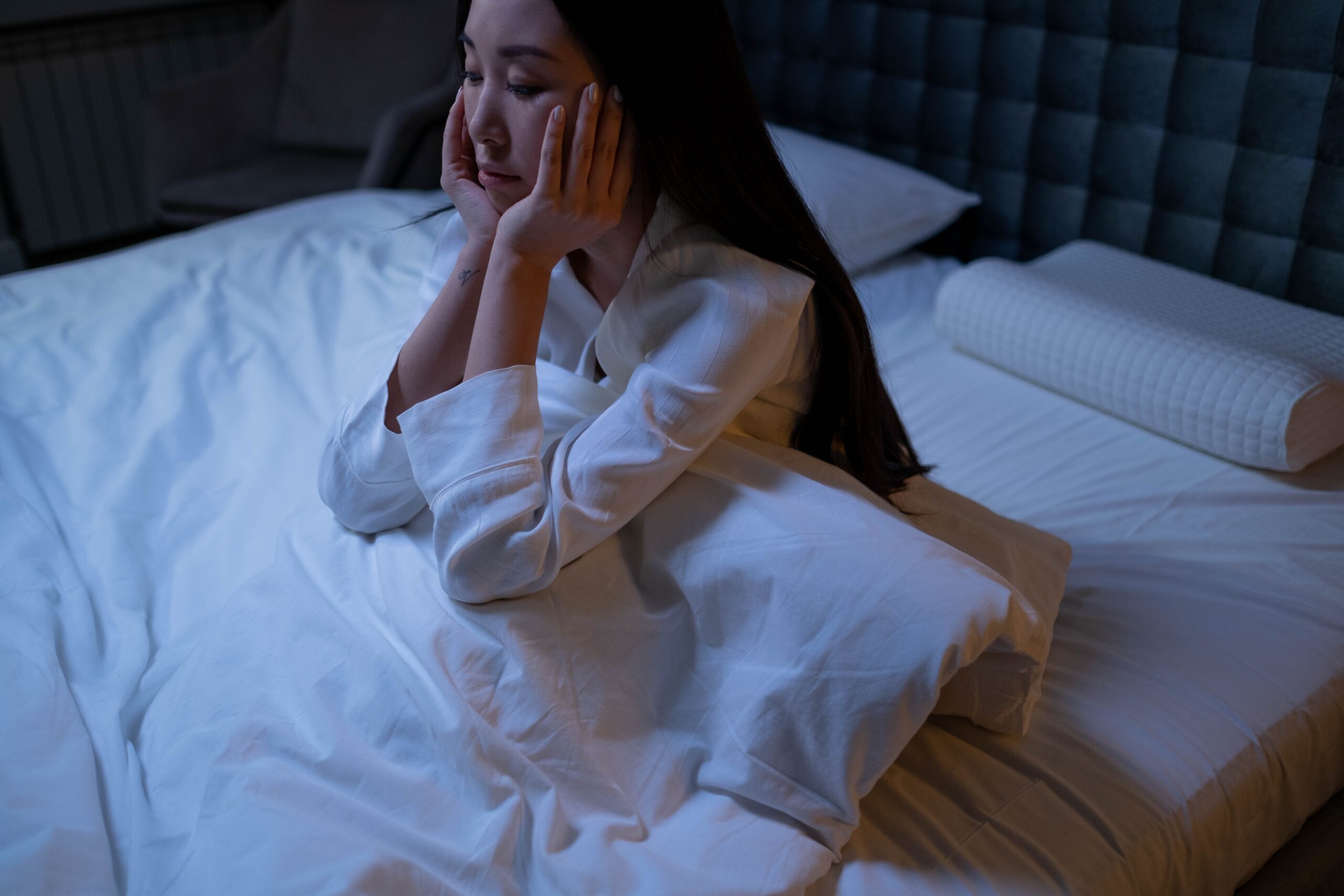
Losing hours of sleep not only makes us feel more and more tired. Good sleep is a prerequisite for health. It regenerates the body, restores strength, and delays the aging process. In addition, it lowers blood pressure and slows down the heart rate and other body functions.
Anxiety can be worsened by sleep issues. To improve sleeping habits, people can try various methods. However, if someone has severe anxiety and insomnia, it's best to consult a physician for treatment recommendations.
Chronic fatigue![]() is most often manifested by a constant or recurring feeling of tiredness that does not subside despite rest. A constant feeling of drowsiness, lack of energy, irritability, and lack of concentration can harm our professional, social, or personal activities.
is most often manifested by a constant or recurring feeling of tiredness that does not subside despite rest. A constant feeling of drowsiness, lack of energy, irritability, and lack of concentration can harm our professional, social, or personal activities.

When someone experiences chronic anxiety, their body and mind are always tense and on high alert. This condition not only leads to feelings of tiredness but can also cause changes in the body that make a person genuinely sleepy.

Concentration![]() is the ability to focus on one stimulus for as long as the activity itself requires it, even if there are internal or external distractions. It is usually divided between alertness (detection of the existence of a stimulus) and concentration (maintaining attention on a stimulus or activity). This cognitive ability is very significant for the effective performance of daily activities.
is the ability to focus on one stimulus for as long as the activity itself requires it, even if there are internal or external distractions. It is usually divided between alertness (detection of the existence of a stimulus) and concentration (maintaining attention on a stimulus or activity). This cognitive ability is very significant for the effective performance of daily activities.
People suffering from anxiety often have trouble staying focused on work, responsibilities, conversations, and all the activities they do. Moreover, this condition negatively affects memory and learning abilities.
Frequent feelings of unease![]() and being caught off-guard are common symptoms of anxiety. People who are preoccupied with worrisome thoughts may experience sudden outbursts of anger toward others. Additionally, individuals with anxiety may become more impatient than they once were, which harms their personal and social lives. Feeling pressure can also result in muscle tension and various physical discomforts.
and being caught off-guard are common symptoms of anxiety. People who are preoccupied with worrisome thoughts may experience sudden outbursts of anger toward others. Additionally, individuals with anxiety may become more impatient than they once were, which harms their personal and social lives. Feeling pressure can also result in muscle tension and various physical discomforts.

Not all anxiety disorders result in panic attacks![]() , but having a panic attack is a definite sign that you are dealing with this condition.
, but having a panic attack is a definite sign that you are dealing with this condition.

Panic attacks are intense episodes of anxiety that can leave the person feeling helpless. They can happen unexpectedly and without warning. Symptoms of a panic attack include:
Anxiety can drain your physical and mental energy, making you too exhausted to be productive. If you spend sleepless nights worrying about every work interaction and feel jittery all day due to anxiety, you'll end up being tired.
Anxiety symptoms can leave you feeling lethargic![]() , and mental health experts believe that this condition can also impact your physical health. Apart from tense muscles, anxiety may also cause constant fatigue and other physical symptoms.
, and mental health experts believe that this condition can also impact your physical health. Apart from tense muscles, anxiety may also cause constant fatigue and other physical symptoms.

Anxiety can cause physical symptoms like tense muscles![]() and a stiff body, which can lead to soreness and long-term damage. You may not even realize it, but if you're experiencing anxiety but still holding tension in your neck and shoulders.
and a stiff body, which can lead to soreness and long-term damage. You may not even realize it, but if you're experiencing anxiety but still holding tension in your neck and shoulders.

You may need to consciously tell your body to relax. This is not due to dehydration or lack of stretching but rather a symptom of anxiety. It's significant to address this condition and its physical effects, as untreated disorders can cause various physical ailments.
Avoiding![]() certain situations or activities could be a sign of anxiety. Especially if you started to avoid activities, things, or places that you used to avoid. For instance, you may not attend social gatherings or avoid public speaking because you fear being judged or criticized. This can lead to isolation and may impact your performance at work or school.
certain situations or activities could be a sign of anxiety. Especially if you started to avoid activities, things, or places that you used to avoid. For instance, you may not attend social gatherings or avoid public speaking because you fear being judged or criticized. This can lead to isolation and may impact your performance at work or school.

Generalized anxiety disorder is also associated with various bodily ailments![]() . Patients may complain of:
. Patients may complain of:

The diagnosis![]() is made after taking the medical history and conducting a psychiatric examination. During them, it is possible to conclude that the patient has typical symptoms of generalized anxiety disorder.
is made after taking the medical history and conducting a psychiatric examination. During them, it is possible to conclude that the patient has typical symptoms of generalized anxiety disorder.
It is worth mentioning that even when the patient suspects the entity described here, it is still necessary to conduct a full psychiatric examination.
Generalized anxiety disorder often coexists with other psychiatric disorders, such as depressive disorders. Determining the coexistence of generalized anxiety disorder with some other entity is, in turn, extremely significant because it may affect the choice of appropriate treatment for a given patient.
It is necessary to emphasize here that when a patient struggles with symptoms corresponding to generalized anxiety disorder, a psychiatrist is not necessarily the only specialist they should see.
In practice, similar symptoms may appear in the case of various diseases with a different background, i.e., thyroid dysfunction or cardiovascular diseases (for example, arrhythmias or heart failure), but also in connection with menopause. For this reason, when the symptoms of generalized anxiety disorder appear suddenly in a patient, it is beneficial to perform at least basic laboratory tests.
The treatment of generalized anxiety disorder typically involves two methods: psychotherapy and pharmacotherapy. Some patients would like to reach only for appropriate pharmaceuticals but in practice, by far the best effects are achieved by the simultaneous use of pharmacotherapy and psychotherapy.
Various types of therapeutic interactions can help patients with generalized anxiety disorder, but cognitive-behavioral psychotherapy![]() is most often recommended in this case. It focuses on current problems – the most important is what is here and now. Treatment usually does not dwell on the past, although there are exceptional situations when it is unavoidable. The duration of the therapy is approximately twenty sessions held once or twice a week. The session itself usually does not last more than one hour.
is most often recommended in this case. It focuses on current problems – the most important is what is here and now. Treatment usually does not dwell on the past, although there are exceptional situations when it is unavoidable. The duration of the therapy is approximately twenty sessions held once or twice a week. The session itself usually does not last more than one hour.
The significant element of successful therapy is the cooperation between the therapist and the patient. Thanks to cognitive-behavioral therapy, it is possible to break down the situation that results in distorted perception. When analyzing a patient's behavior, it's significant to differentiate between several factors. These include the stimulus that triggers their actions, their unique thought process in response to that stimulus, the resulting emotions and physical sensations, and the actual behavior exhibited by the patient.
During cognitive-behavioral therapy, the specialist analyzes challenging situations and discovers the thoughts that caused the misinterpretation of reality. At the same time, they must make the patient aware of the irrationality of the reactions that were previously presented and give them hope that they can change their perception of the world.
Finding the stimulus responsible for the incorrect reaction is referred to as the cognitive part of therapy. The behavioral side of the treatment consists of experiments that are supposed to teach the patient new reactions and behaviors – without the baggage of emotional burdens. Testing new situations allows the patient to change behavior, develop habits, and learn new reactions to stimuli.
Pharmacotherapy![]() of generalized anxiety disorder is based on the use of antidepressants by the patient, which can not only improve mood but also have an anxiolytic effect. We usually use selective serotonin reuptake inhibitors known as SSRIs.
of generalized anxiety disorder is based on the use of antidepressants by the patient, which can not only improve mood but also have an anxiolytic effect. We usually use selective serotonin reuptake inhibitors known as SSRIs.
It is worth mentioning here that from the moment of starting the use of antidepressants to the appearance of their effects, a certain amount of time, usually several weeks, passes. In people who have very severe symptoms of generalized anxiety disorder, the doctor may recommend short-term treatment with benzodiazepine preparations. However, you should take this type of drug as short as possible because taking them for too long is associated with the risk of addiction.
The prognosis is good. Thanks to pharmacotherapy, psychotherapy, and lifestyle modifications![]() (e.g., increasing the intensity of physical activity undertaken, avoiding stress, and relaxing) in most people struggling with this problem, it can lead to a partial or complete resolution of the associated ailments.
(e.g., increasing the intensity of physical activity undertaken, avoiding stress, and relaxing) in most people struggling with this problem, it can lead to a partial or complete resolution of the associated ailments.
Table of Contents

Anxiety is characterized by persistent worry and fear that are more intense that they would normally be. What are its… read more »

Also known as lockjaw, tetanus is an infectious disease spread by spores of Clostridium tetani bacteria, which can be found everywhere in the… read more »
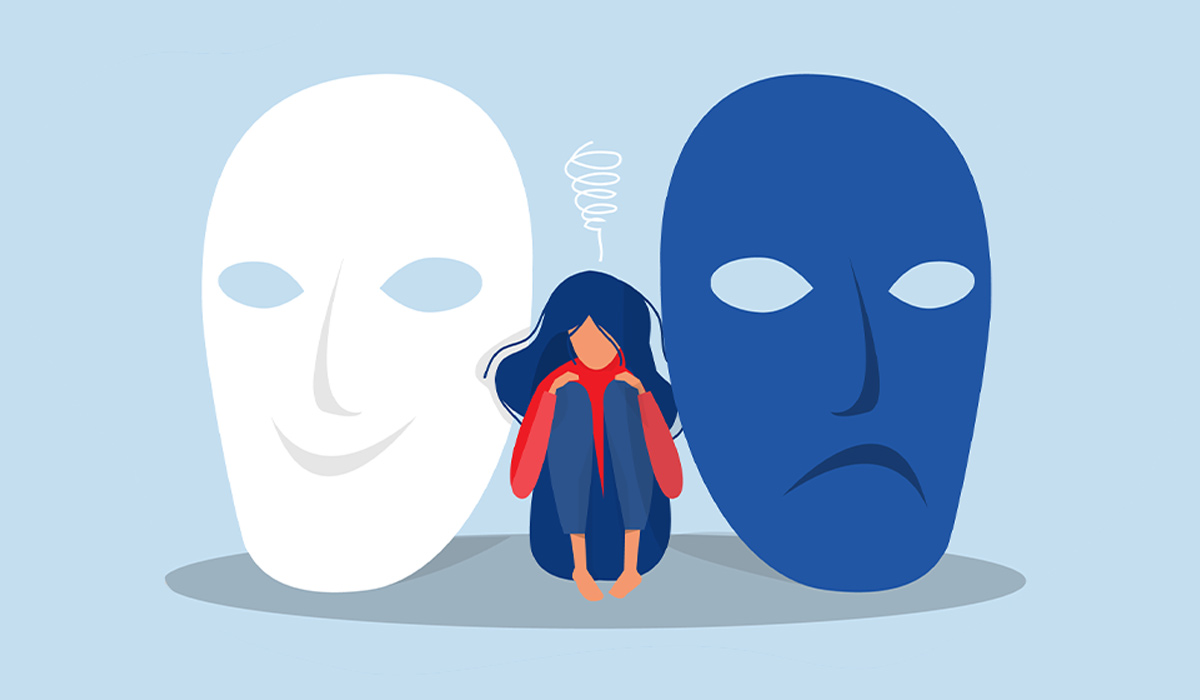
Bipolar disorder is a mental disorder characterized by the alternation of extremely different mental states – depression and mania. What… read more »
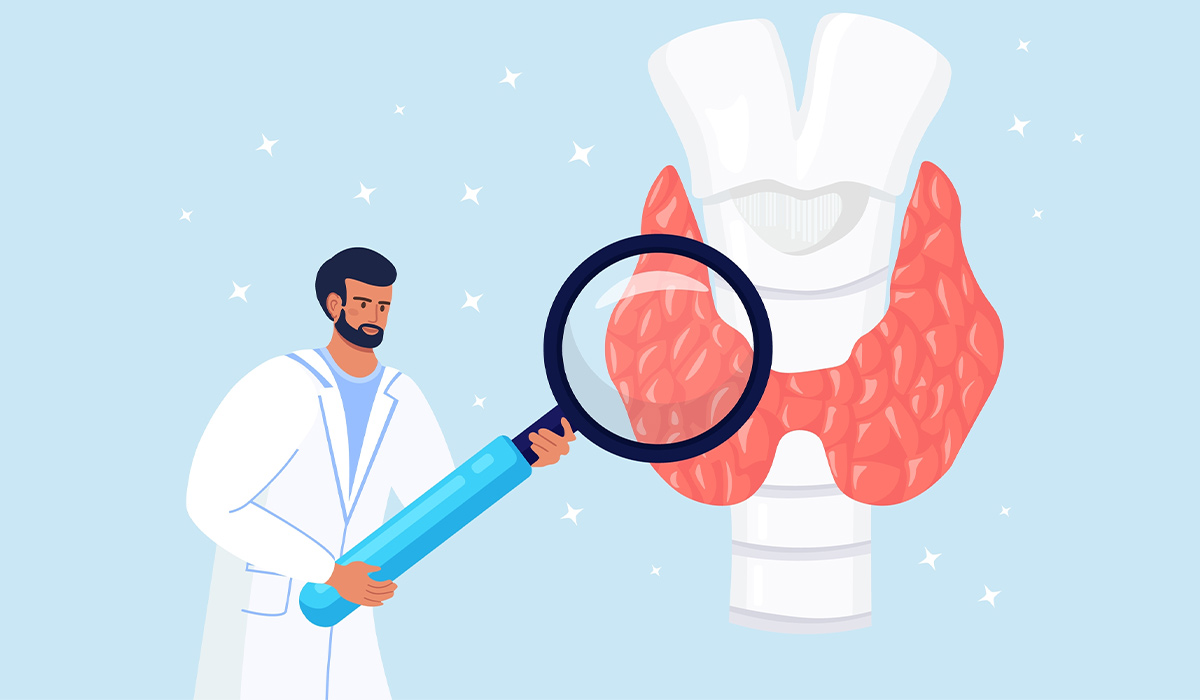
The thyroid is a small organ whose hormones regulate the body's metabolism. Check what are the signs of thyroid problems.… read more »
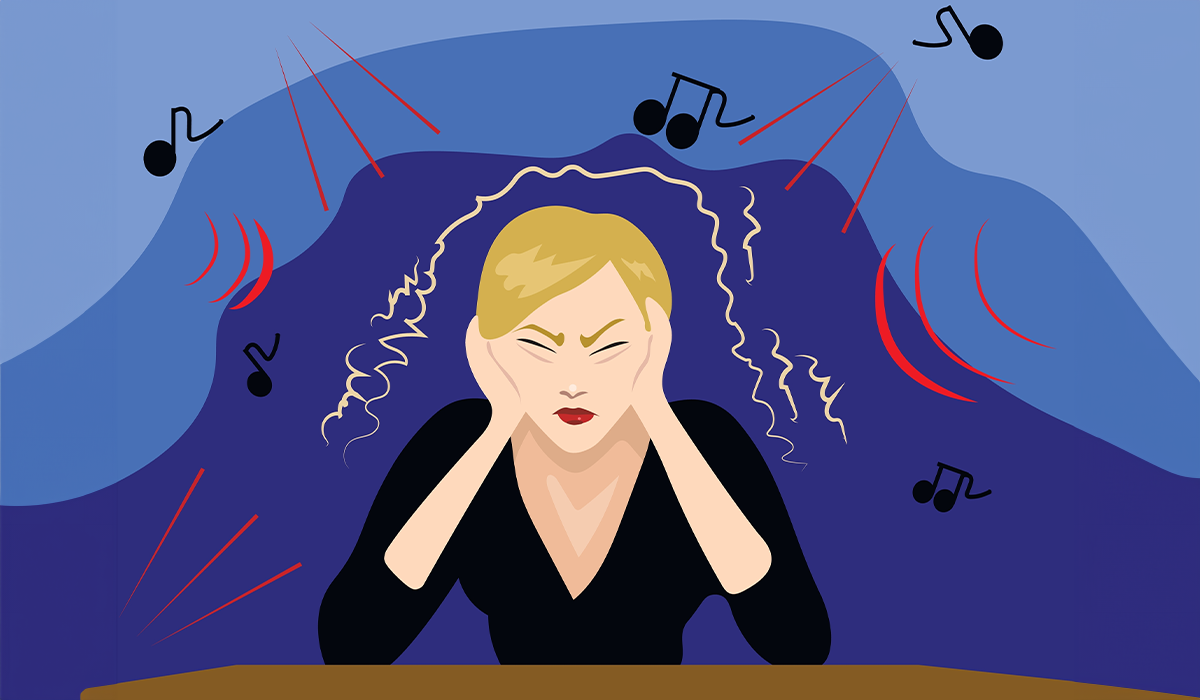
Misophonia is an inappropriately strong reaction to specific sounds. It occurs in many disorders. Learn about the meaning of misophonia… read more »

Schizophrenia is a psychotic disorder characterized by several groups of symptoms. The signs of schizophrenia may be present all the… read more »

A hypochondriac is a person who is constantly looking for diseases and various health problems in themself. How is this… read more »
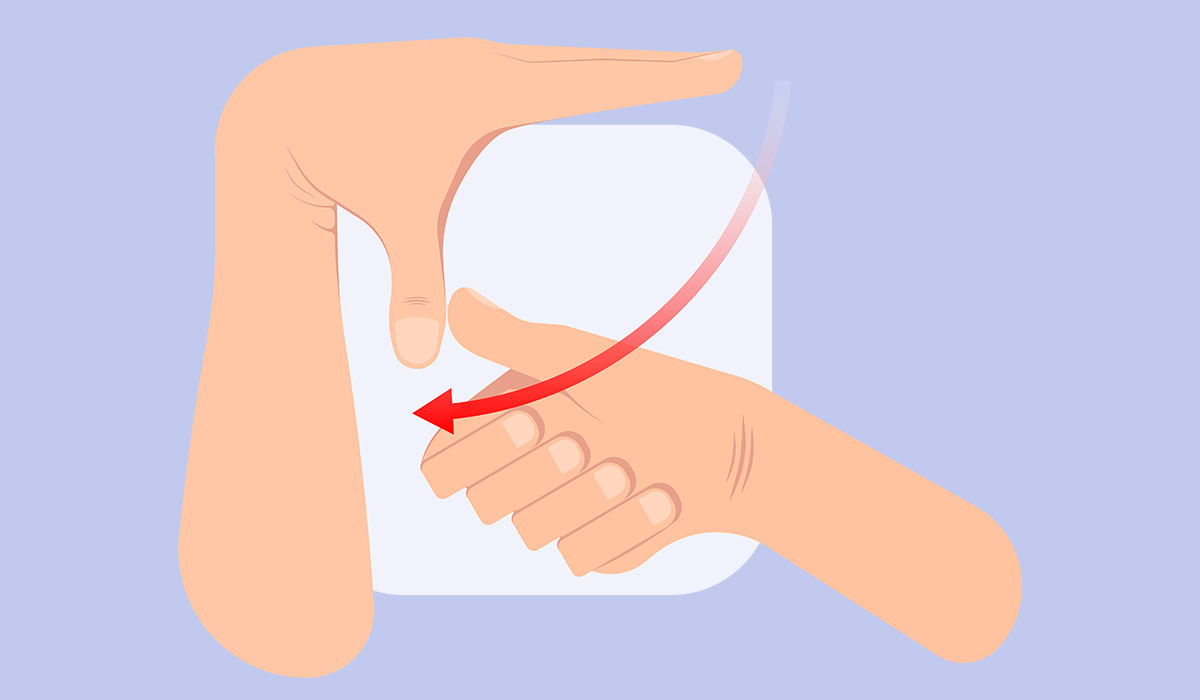
Ehlers-Danlos Syndrome is a group of diseases with a genetic basis. Learn all the symptoms associated with EDS. Find out… read more »

Neuropathy is a disease of the peripheral nerves. Discover what are the most common neuropathy symptoms and ow to deal… read more »